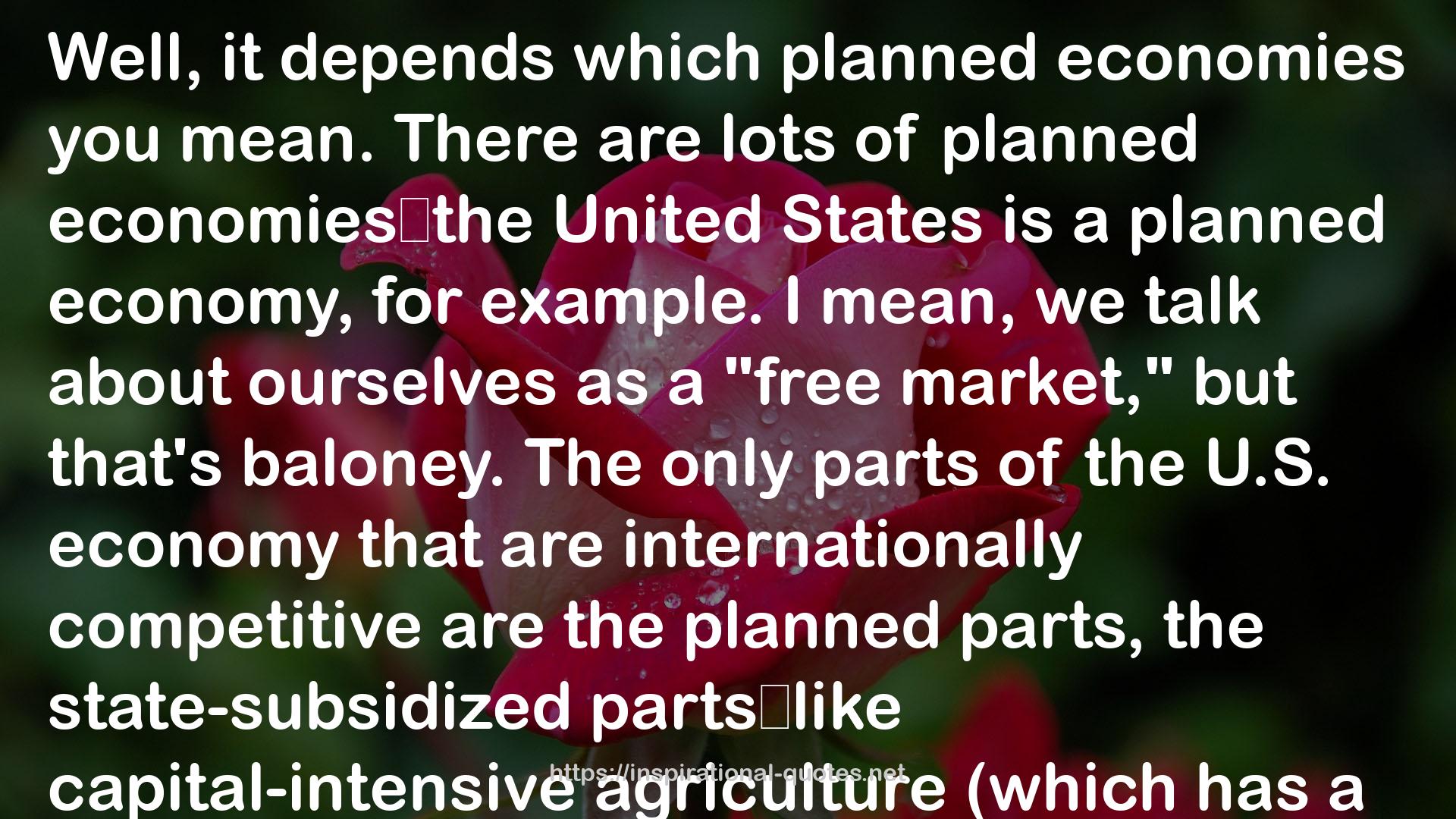" Well, it depends which planned economies you mean. There are lots of planned economies―the United States is a planned economy, for example. I mean, we talk about ourselves as a "free market," but that's baloney. The only parts of the U.S. economy that are internationally competitive are the planned parts, the state-subsidized parts―like capital-intensive agriculture (which has a state-guaranteed market as a cushion in case there are excesses); or high-technology industry (which is dependent on the Pentagon system); or pharmaceuticals (which is massively subsidized by publicly-funded research). Those are the parts of the U.S. economy that are functioning well.
And if you go to the East Asian countries that are supposed to be the big economic successes―you know, what everybody talks about as a triumph of free-market democracy—they don't even have the most remote relation to free-market democracy: formally speaking they're fascist, they're state-organized economies run in cooperation with big conglomerates. That's precisely fascism, it's not the free market.
Now, that kind of planned economy "works," in a way―it produces at least. Other kinds of command economies don't work, or work differently: for example, the Eastern European planned economies in the Soviet era were highly centralized, over-bureaucratized, and they worked very inefficiently, although they did provide a kind of minimal safety-net for people. But all of these systems have been very anti-democratic―like, in the Soviet Union, there were virtually no peasants or workers involved in any decision-making process. "
Image for Quotes

And if you go to the East Asian countries that are supposed to be the big economic successes―you know, what everybody talks about as a triumph of free-market democracy—they don't even have the most remote relation to free-market democracy: formally speaking they're fascist, they're state-organized economies run in cooperation with big conglomerates. That's precisely fascism, it's not the free market.
Now, that kind of planned economy "works," in a way―it produces at least. Other kinds of command economies don't work, or work differently: for example, the Eastern European planned economies in the Soviet era were highly centralized, over-bureaucratized, and they worked very inefficiently, although they did provide a kind of minimal safety-net for people. But all of these systems have been very anti-democratic―like, in the Soviet Union, there were virtually no peasants or workers involved in any decision-making process." style="width:100%;margin:20px 0;"/>